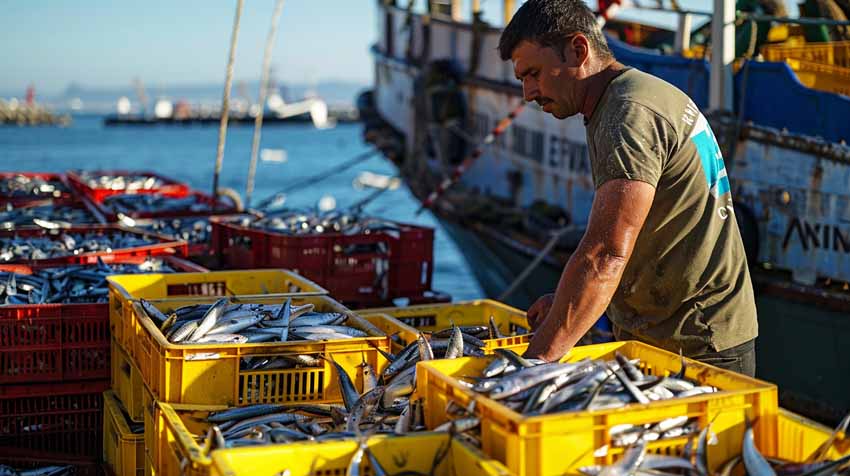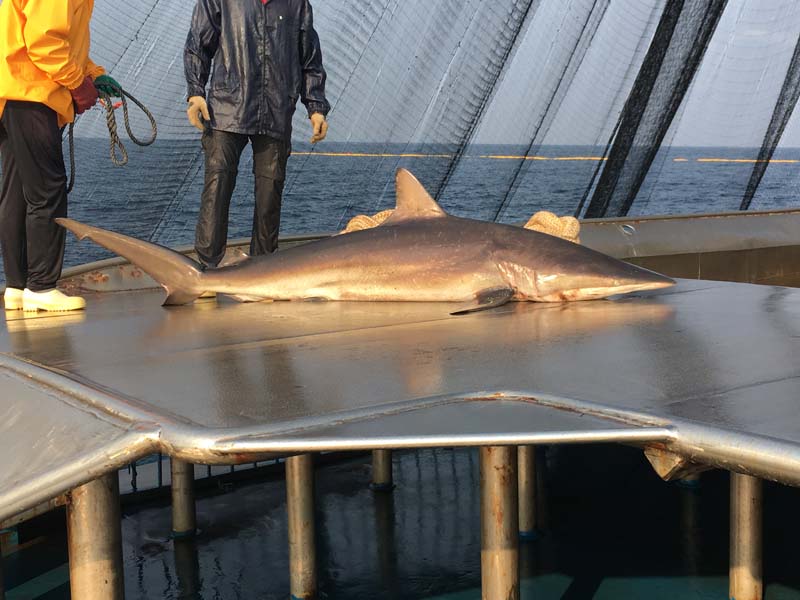Getting rid of mercury in marine sediments thanks to MER-CLUB
Últimas noticias
Savour and sustainability: insects in gastronomy
Catching fish living at depths of more than 200 meters may have climatic consequences
The future of marine resources and its impact on food security
MER-CLUB is an ambitious scientific project which aims to tackle the issue of mercury pollution in marine sediments. Mercury pollution is a global problem with large environmental, socio-economic and health impacts.
The MER-CLUB project is developing a clean-up system based on bioremediation, a green technology which uses the potential of natural microbes to break down harmful pollutants.
From polluted sites, the team of scientists has successfully isolated promising microbial candidates capable of detoxifying mercury (Hg) in vitro.
The project is now entering into its final stage, testing these promising microbes in natural sediments. Coordinated by AZTI in Spain, the project is supported by the European Maritime and Fisheries Fund and gathers partners in France, Sweden, Germany and Spain.
Mercury – a danger for our ocean and ourselves
Not only do our waste and fishing nets contribute to the pollution of our freshwater and ocean, but also chemical products that end up in the water. Mercury (Hg) is one of the most dangerous natural pollutants. However, like other sources of pollution, there are natural solutions available.
The MER-CLUB project is playing a crucial role in supporting the European Zero Pollution Action PlanEN••• by developing a clean-up system to remove mercury from the marine environment.
Using biological processes to remove mercury
Bioremediation is a process that relates to the use of natural microorganisms to consume and break down environmental pollutants. MER-CLUB aims to target the variety of marine Hg detoxifiers with the ultimate goal of naturally cleansing the marine environment of mercury contamination. Since its launch in 2020, the project has been quite a success:
In 3 years, we have gone down the road from understanding which microbes carry out Hg detoxification in complex marine sediments to bringing into culture some promising candidates for Hg bioremediation. This has been already a great undertaking and making it work in natural sediments is the next challenge
says Laura Alonso-Sáez, the coordinator of the MER-CLUB project.
Promising marine sediments
To decontaminate, marine sediments are used, not only because they are the final repository of most environmental pollutants, but also because this is where most crucial Hg biogeochemical processes take place. Key to these processes are the sediment bacteria which drive both the harmful and beneficial aspects of the cycle. While some of them produce extremely toxic substances which accumulate in the food chain and pose a danger to human health, others hold significant value for their ability to neutralise toxins and are, therefore, interesting for bioremediation.
In only 30 sediment samples, we have compiled a gene catalogue containing 16 million non-redundant genes, which displayed a high level of novelty. More than 50% of these genes are still unidentified, holding significant potential for future blue biotechnology applications
says Silvia G. Acinas from ICM-CSICEN••• (Spain), in charge of building a Hg-detoxification reference gene catalogue from MER-CLUB samples collected from Mediterranean, Atlantic and Baltic sediments.
After successfully isolating marine bacterial cultures and consortia with Hg-detoxifying capabilities in vitro, we are now testing their performance in microcosms with natural sediments at SLUEN••• (Sweden), as a preliminary step before upscaling.
Traditional Hg removal approaches have been mainly based on landfill disposal and thermal processes, which are not environmentally sustainable options. The development of a successful bioremediation technology would be a great step forward in many ways, even if obtaining a technically and economically viable bioprocess at the industrial scale remains highly challenging
say Nerea Duroudier and Ibon Lekue from the private company AFESA (Spain), who will be in charge of building the bioremediation pilot plant at the final stage of the project.
A success story also for researchers
In addition to its positive impact on the environment this project is also an excellent opportunity for career researchers in emerging fields.
Carla Pereira, UAB, said:
MER-CLUB has given me the opportunity to do a PhD focused on what I like most, the sea. As an environmentalist, it is a privilege to have the chance to make our oceans healthier. Being part of this great group of scientists has been truly an extraordinary experience.
This is also the case of the PhD student Carla Pereira, the junior postdoctoral researcher Elena Hernández del Amo or the tenure track researcher Andrea García Bravo (ICM-CSIC) who said:
Participating in MER-CLUB has allowed me to interact with an interdisciplinary group of scientists and, for the first time, with a company, which has been a wonderful experience! MER-CLUB has fostered my career and might increase my chances of getting a permanent position in the next few years.
Furthermore, according to a recent study, three women scientists from the Mer-Club consortium are among the top 5,000 women working in Spanish institutions: Andrea García Bravo, Olga Sánchez and Laura Alonso-Sáez.







